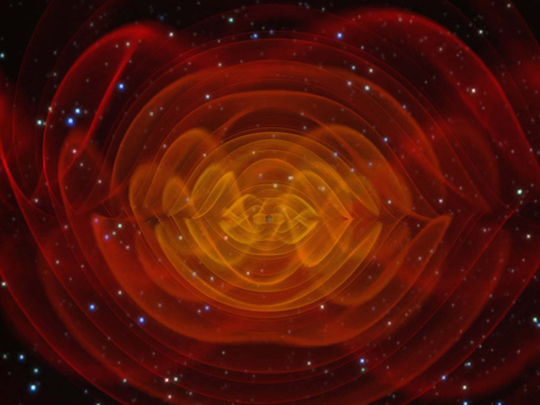
The Mainichi, Japan’s leading daily, writes in its editorial: “The detection of the waves does much more than simply confirm a part of Einstein’s general theory of relativity. It promises to allow us to observe the birth of black holes, the hearts of supernovae, and other astronomical phenomena that cannot be seen in visible light, X-rays, electromagnetic waves or any of the other emissions... It may also give us fresh insight into the state of the universe just after its creation.
“Like the day Galileo first turned his telescope to the night sky, the detection of gravitational waves opens a new window on the universe. The detection of gravitational waves won’t make our lives any more convenient, but it has enormous significance simply by firing human curiosity and imagination.”
Toronto’s the Globe and Mail feels this is a moment for “human self-congratulaton”. “It takes a precious moment of discovery, one we can now experience thanks to physicists whose ground-based laser beams captured the instant a billion years ago when two black holes collided — and began sending news of their impact across the inattentive vastness of space and time. We get to live in a world that for all of its flaws and shortcomings includes these rare people who search for the unseen movements of distant galaxies, testing the limits of comprehension in the most limitless realm possible.”
India’s Business Standard beleievs this discovery opens up new era in astrophysics. “It confirms one of Albert Einstein’s most startling hypotheses. It was a century ago that Einstein, through his General Theory of Relativity, claimed that gravity worked in waves. The dimensions of the new research and fresh discoveries that could follow from this breakthrough can only be guessed at. Being able to use gravitational waves opens up new observational windows. Gravity itself has never been integrated into quantum theory and a better understanding of this force could help put together the so-called ‘Grand Unified Theory’ which Einstein, Abdus Salam and other great physicists have long sought.”
Chicago’s Sun Times in its editorial calls for a celebration at the discovery: “Scientists are expected to be excited by such breakthroughs, and they were. But the rest of us should be celebrating, too. First, because it was hard to do. It took a commitment of $1.1 billion [Dh4 billion] and more than 40 years by the (US) National Science Foundation to achieve something that ... could prove to be one of the greatest mileposts ...”
“Second, because as hard to grasp as basic science may be, it’s the source of many of the advancements we take for granted in our daily lives. No one who worked on the development of the hydrogen maser foresaw it would help lead to the GPS systems we use to navigate ...”
India’s Asian Age believes this discovery may lead to complete explanations of everything. “The world of science is agog. Albert Einstein was always right and we can say so with even greater authority now that gravitational waves have been recorded.”




_resources1_16a31069e4e_small.jpg)







